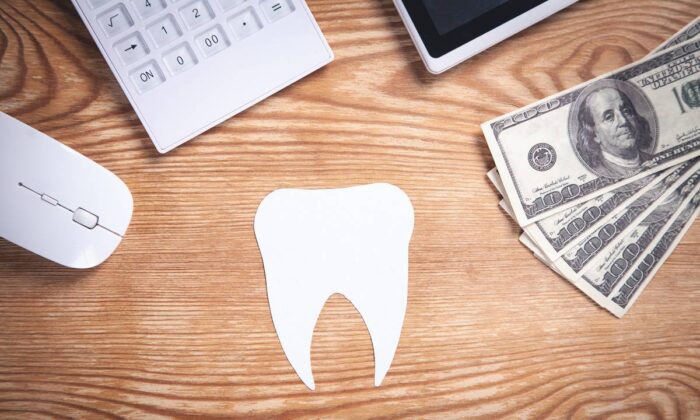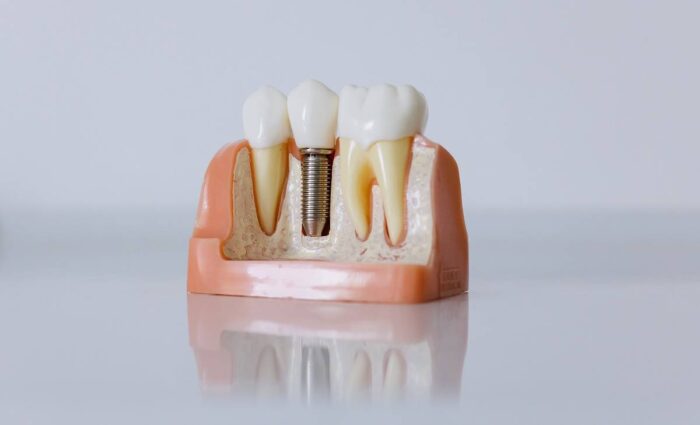Tooth loss can be devastating, both emotionally and financially. Replacing missing teeth with implants is an excellent option to restore self-confidence and the ability to eat and speak properly.
However, one of the biggest questions patients have is, “What is the cost of a single tooth implant?” In the U.S., adults aged 45 to 64, on average, have 5 missing teeth. As people get older and reach beyond 65 years, they lose up to 18% of their natural teeth.
Dental implants sound like a good option to retain that winning smile. But how much do they really cost and can you afford them? Learn about the factors that affect the cost of one dental implant in this blog.
Single Tooth Dental Implants: Overview
The cost of a single tooth implant varies from patient to patient. The best way to determine your exact cost is to visit your dentist for an in-depth consultation. Several factors will influence the price of your implant, such as dental insurance coverage, location, type of implant used, your dentist or surgeon, sedation (if needed), and additional procedures like gum grafting, root canal, or fillings.
When you consult with your dentist, they should present a list of options and the overall expenses before asking you to commit to a dental implant. They will also help you learn about alternative options.
Cost Of One Dental Implant

The average cost of a single dental implant in the U.S. is $3,913, according to the 2019 Fair Health Consumer Cost Lookup. The cost can range from $1,000 to $6,000, depending on the implant type, location, and the procedure's complexity. Additionally, it can be as high as $15,000 in some cases.
The cost of one dental implant typically includes the overall cost, the abutment, and the crown. It can range from $1,000 to $3,000, while the cost of the abutment can range from $250 to $500. The cost of the crown can range from $500 to $3,000.
This does not include additional procedures such as a bone graft or sinus lift, which may add thousands more dollars, depending on the surgery's complexity and the recovery time required. Some dentists may offer payment plans or refer you to companies that offer dental plans or loans so you can afford a dental implant procedure.
Other Factors That Affect The Cost
These are the other procedures that you might need, which may increase the cost:
- Oral Evaluation: Average costs $100 but can go up to $200 depending on the dentist.
- Panoramic X-Ray: Usually costs $130 but ranges from $100 to $200. X-rays are important, so the dentist will know how much space they have to insert the dental implant.
- Cone Beam CT: Costs $350 on average but can go as high as $750. This is another type of dentist service that may or may not be needed.
- Tooth Extractions: Costs $300 on average but ranges from $200 to $700. Sometimes, one or two extra teeth must be removed before implants can be added. The cost of removing teeth varies depending on the complexity.
- Bone Grafting: Costs $650 on average and can go up to $1,000. Bone grafting creates a thicker space in your bone, giving the dental implant a more stable space to sit in your jaw. This will prevent failure in the future, which can be costly to repair.
Cost Of One Dental Implant Without Insurance
As you can see, it’s not uncommon for people without insurance to pay anywhere from $1,000 to $4,000 per implant. Some will even pay higher if the procedure is complex and requires added services like tooth extraction and bone grafting.
Most dental insurance companies do not cover the cost of implants because they are considered cosmetic dentistry procedures. However, some insurance plans may cover partial costs or reimburse you after you’ve paid out-of-pocket. It’s important to check with your insurer before undergoing any treatment so you know what coverage you can expect.
Frequently Asked Questions:
The average cost of a single dental implant in the US ranges from $1,500 to $6,000. This cost typically includes the implant, abutment, and crown. However, prices can vary significantly depending on factors such as location, dentist's experience, and the materials used, so it's essential to research and compare costs from different providers in your area.
Additional costs associated with a dental implant procedure may include consultations, X-rays, CT scans, or 3D imaging, tooth extraction, bone grafts, sinus lifts, and anesthesia or sedation fees. The need for these additional procedures and their costs may vary depending on the patient's individual circumstances and the dentist's recommendations.
Dental insurance coverage for dental implants varies depending on the policy and provider. Some insurance plans may cover a portion of the cost, while others may not cover dental implants at all. It's essential to review your dental insurance policy and discuss the coverage options with your provider to determine the extent of coverage for dental implant procedures.
Is It The Best Option For You?
Overall, getting a single tooth implant can be expensive, but it also offers many benefits over other tooth replacement options, such as bridges, veneers, or dentures. If you're considering getting an implant, it's important to research all available options so that you can make an informed decision about how much money you're willing to spend on your new smile.
Ultimately, talking with an experienced dentist is the best way to get a personalized quote for your single-tooth implant procedure. That way, you can ensure that the price tag fits comfortably within your budget while giving yourself access to top-quality care and results.
Do you need dental implants but lack the budget? Check out our guide on how to get affordable dental implants.







